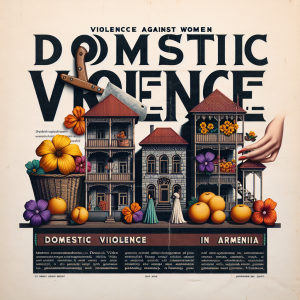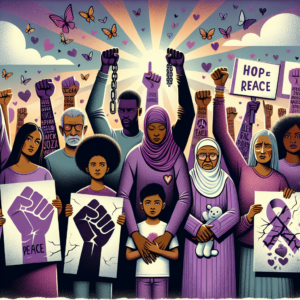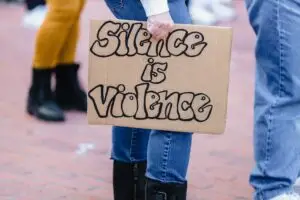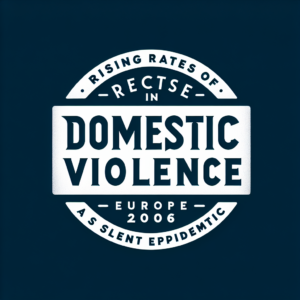Understanding UK Laws: A Comprehensive Guide to Domestic Violence
Introduction:
Domestic violence is a pervasive issue that affects countless individuals and families in the United Kingdom. It refers to any pattern of abusive behavior within a relationship that is used by one partner to gain power and control over the other. In the UK, domestic violence is taken seriously and is punishable by law. This comprehensive guide aims to provide an in-depth understanding of UK laws pertaining to domestic violence, including the legal definitions, types of abuse, available legal remedies, and the rights of victims. Additionally, a FAQ section will address commonly asked questions to further enhance the understanding of this important topic.
Understanding Domestic Violence:
Domestic violence encompasses a wide range of abusive behaviors that can be physical, emotional, sexual, or financial. Physical abuse may involve hitting, slapping, kicking, or any other form of physical harm. Emotional abuse can include manipulation, belittlement, threats, or isolation. Sexual abuse involves any form of unwanted sexual activity, while financial abuse is the control or withholding of financial resources by the abuser to exert power over the victim. It is important to note that domestic violence can occur in any type of relationship, including married couples, cohabiting partners, and even family members.
Legal Definitions and Protections:
The UK has several laws in place to protect victims of domestic violence and hold perpetrators accountable. The main legislation that addresses this issue is the Domestic Violence, Crime, and Victims Act 2004. Under this Act, domestic violence is defined as any incident or pattern of incidents of controlling, coercive, or threatening behavior, violence, or abuse between intimate partners or family members. The law acknowledges that domestic violence is not limited to physical violence and recognizes the broader scope of abusive behaviors.
Legal Remedies for Victims:
Victims of domestic violence have several legal remedies available to them in the UK. Firstly, they can seek a non-molestation order or an occupation order from the family court. A non-molestation order restricts the abuser from contacting or harassing the victim, whereas an occupation order grants the victim the right to live in the family home and excludes or restricts the abuser’s access. Victims can also report the abuse to the police, who may arrest the perpetrator and bring charges against them. In severe cases, victims can seek refuge in a safe house, which provides temporary accommodation and support.
Rights of Victims:
The rights of victims of domestic violence in the UK are protected by both domestic and international law. The Domestic Violence, Crime, and Victims Act 2004 acknowledge the rights of victims to be safe, to be supported, and to have their voices heard. The act also establishes the role of the Independent Domestic Violence Advisor (IDVA) who can provide practical and emotional support to victims throughout the legal process. Furthermore, the UK is a signatory to international conventions, such as the Istanbul Convention, which obligates the government to take measures to prevent violence against women and provide comprehensive support services.
FAQs:
Q1: What should I do if I am a victim of domestic violence?
A: If you are a victim of domestic violence, the first step is to ensure your safety. If you are in immediate danger, call the police. Seek support from organizations such as Women’s Aid or the National Domestic Violence Helpline who can provide advice, assistance, and referral to appropriate services. Consider seeking legal remedies such as non-molestation orders or occupation orders from the family court.
Q2: What evidence do I need to provide to obtain a non-molestation order?
A: To obtain a non-molestation order, you should provide evidence of the abuse. This can include photographs of injuries, medical reports, witness statements, police reports, or any relevant documentation that demonstrates the pattern of abusive behavior.
Q3: Can domestic violence affect child custody arrangements?
A: Yes, domestic violence can have an impact on child custody arrangements. When determining child custody, the welfare of the child is the court’s primary concern. If there is evidence of domestic violence, the court may consider it detrimental to the child’s well-being and may make arrangements that prioritize the safety of the child and the victim.
Q4: Can an abuser be evicted from the family home?
A: Yes, an abuser can be evicted from the family home through an occupation order granted by the family court. This order can restrict or exclude the abuser from entering the property and may also grant the victim the right to live in the home.
Conclusion:
Understanding UK laws pertaining to domestic violence is crucial for victims and society as a whole. By recognizing the different types of abuse, knowing the legal definitions and protections, understanding the available legal remedies, and being aware of the rights of victims, we can take steps towards creating a safer environment for those affected by domestic violence. It is important for victims to seek help, report the abuse, and utilize the legal options available to them to break free from the cycle of violence and reclaim their lives.




















